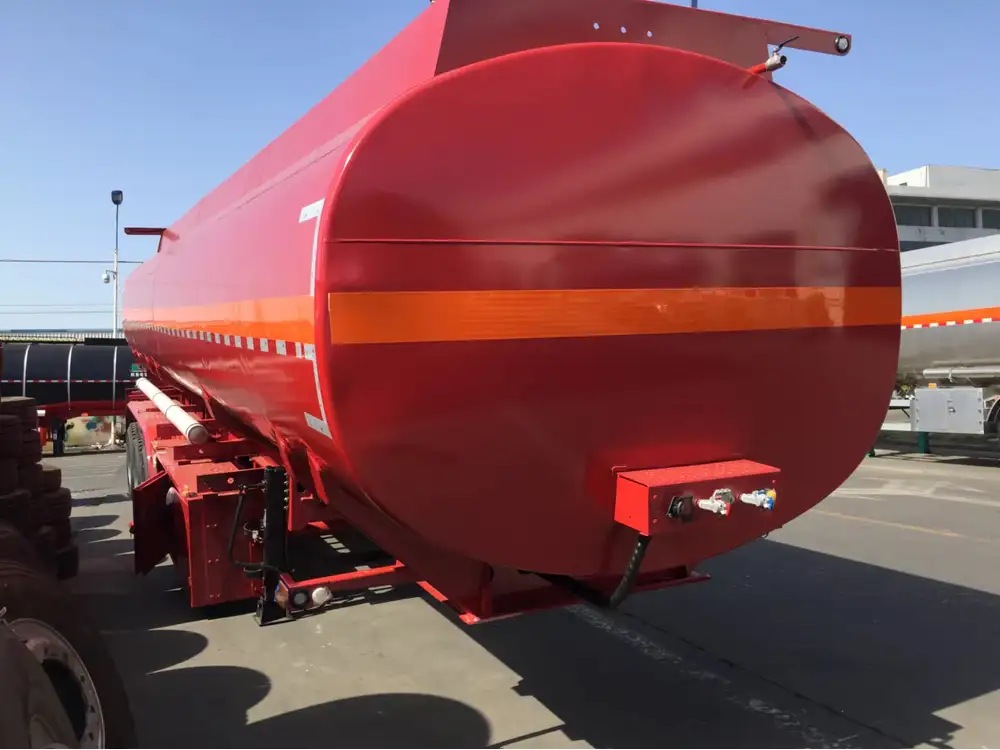The transportation landscape in Uganda is rapidly evolving, and one of the pivotal components of this transformation is the necessity for high-quality fuel trucks. As industries develop and the economy thrives, the demand for reliable fuel delivery solutions only continues to increase. This article explores the essential features, types, and benefits of acquiring fuel trucks, alongside a guide to the best options available for sale in Uganda.
Understanding the Importance of Fuel Trucks
Fuel trucks play an integral role in the logistics of various sectors, ranging from agriculture and mining to construction and fuel distribution networks. Their design is engineered to facilitate the safe and efficient transport of various fuels, including diesel, gasoline, and lubricants.
Key Functions of Fuel Trucks
- Transporting Fuel: Primary function is to deliver fuel to remote locations or fuel stations.
- Storage Solutions: Many models can act as temporary storage vessels, ensuring that fuel supply is consistently maintained.
- Safety Standards: Equipped with safety features to handle the risks associated with transporting hazardous materials.
- Versatility: Suitable for various fuels, adapting to different industry needs.

Types of Fuel Trucks Available
Understanding the different types of fuel trucks is crucial for making an informed purchase. Below is a detailed comparison of the various types of fuel trucks for sale in Uganda.
| Type of Fuel Truck | Capacity | Ideal Use Case |
|---|---|---|
| Single Axle Trucks | 3,000 – 5,000 Liters | Ideal for small businesses and local deliveries. |
| Tandem Axle Trucks | 6,000 – 10,000 Liters | Suitable for medium-sized operations, balancing capacity and maneuverability. |
| Tri-Axle Trucks | 10,000 – 30,000 Liters | Designed for large-scale operations and bulk fuel transport. |
| Fuel Tank Trailers | 5,000 – 30,000 Liters | Versatile and can be towed; ideal for businesses needing flexible solutions. |
How to Choose the Right Fuel Truck
When selecting a fuel truck, several factors must be contemplated:
- Capacity Requirements: Determine how much fuel you need to transport on a regular basis.
- Fuel Types: Ensure the truck can handle the specific fuel types your operations necessitate.
- Regulatory Compliance: Adherence to national and international safety regulations is pivotal.
- Budget: Analyze both initial purchase cost and long-term operational expenses.
- Brand Reputation: Consider trusted manufacturers such as CarMax Vehicle known for their quality and reliability.
Advantages of Investing in Fuel Trucks
Investing in fuel trucks can lead to various operational benefits:

Enhanced Operational Efficiency
With a dedicated fuel truck, delivery times can be significantly reduced, allowing businesses to operate more fluidly. The ability to store and transport fuel efficiently directly correlates to increased productivity.
Safety and Compliance
Modern fuel trucks come equipped with advanced safety features such as spill containment systems and pressure relief valves. This is crucial in safeguarding against fuel leaks and ensuring compliance with stringent regulations.
Economic Benefits
While the initial investment could be considerable, the long-term gains from improved fuel management, decreased reliance on third-party logistics, and potential bulk fuel purchase discounts can yield substantial cost savings.

Customization Options
Available in various configurations, fuel trucks can be customized to meet specific operational needs. Whether it’s the tank size, pump type, or additional features like GPS tracking, options are plentiful.
Features to Look for in Fuel Trucks
When considering fuel trucks for sale in Uganda, it’s essential to evaluate their features:
- Tank Material: Aluminum and carbon steel are standard; each has its advantages concerning weight and durability.
- Pumping Systems: Look for efficient and reliable pumping systems for quick fuel transfer.
- Safety Features: Ensure that your chosen model includes features such as emergency shut-off valves, anti-static grounding, and rollover protection.
- Mobility: Assess the vehicle’s ease of maneuverability, especially in Uganda’s diverse terrains.
Where to Buy Fuel Trucks in Uganda
Finding reputable sources for fuel trucks is crucial. Below are the options where you can find quality fuel trucks for sale in Uganda:
- Local Dealerships: Engaging local dealers can provide insights into regionally popular models that meet local demands.
- Online Platforms: Websites dedicated to vehicle sales often feature a wide selection of fuel trucks. They can provide comparisons, price listings, and sometimes even reviews from previous buyers.
- Manufacturers: Companies like CarMax Vehicle manufacture robust and durable fuel trucks, offering direct purchasing options and customization.

Maintenance Tips for Fuel Trucks
Owning a fuel truck involves a commitment to maintenance to ensure safety and functionality:
Regular Inspections
Conduct frequent checks on fuel tanks, pipelines, and safety systems to prevent leaks and ensure optimal performance.
Schedule Servicing
Implement a maintenance schedule that includes comprehensive servicing at specified intervals, which should cover engine performance, brakes, and routing systems.

Keep Documentation
Maintain accurate records of all inspections and repairs, which can be invaluable for warranty purposes and resale value.
Conclusion
Fuel trucks are an indispensable asset in Uganda’s transportation industry, tailored to meet a plethora of needs ranging from fuel distribution to bulk transport. Investing in fuel trucks for sale in Uganda provides a competitive edge, guaranteeing operational efficiency, safety, and compliance.
By considering the features and selecting the right type of fuel truck, businesses can enhance their logistics operations and effectively manage fuel transportation challenges. CarMax Vehicle stands ready to assist with high-quality fuel trucks that cater to your specific requirements.
FAQs
1. Are fuel trucks regulated in Uganda? Yes, fuel trucks must comply with local and international safety regulations to ensure safe transport of hazardous materials.
2. What types of fuel can be transported with these trucks? Fuel trucks can transport various types of fuel, including diesel, gasoline, and lubricants.
3. How often should fuel trucks be serviced? It is advisable to have fuel trucks serviced at least once a year or according to the manufacturer’s guidelines.
4. Can fuel trucks be customized? Absolutely, many manufacturers offer customization options to tailor fuel trucks to specific operational requirements.












Reviews
There are no reviews yet.